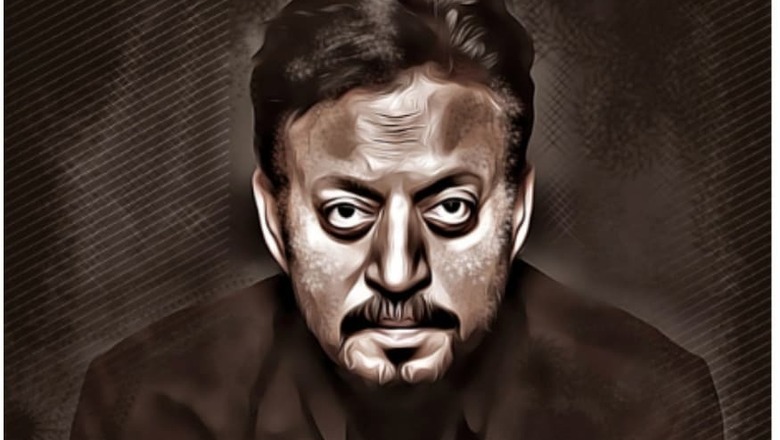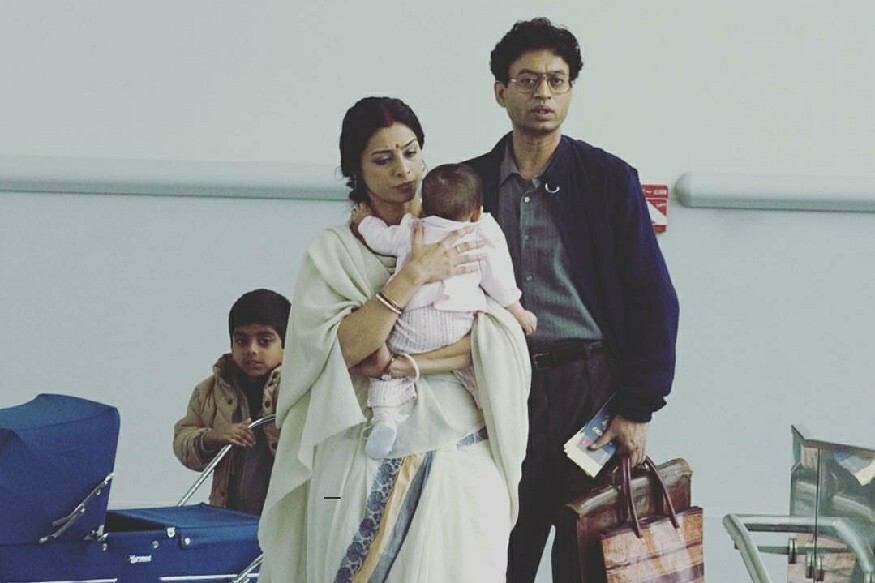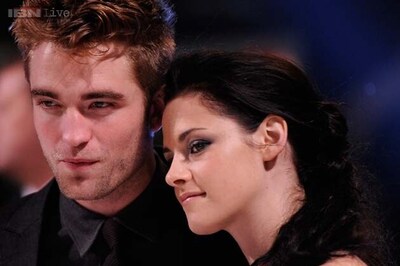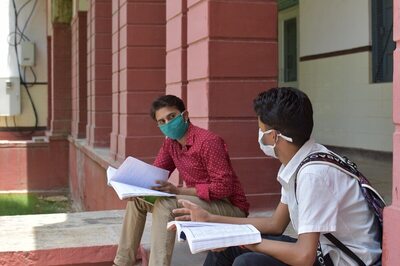
views
Art is longer than life - Lee Strasberg
The horror, the horror...the elongated, rattling gasp of a dying Marlon Brando in Apocalypse Now encapsulates the shaken feelings of an Indian cinema lover’s at the tragic passing of Irrfan Khan. Fifty-three short years of which many were spent doing long, arduous and magical hours in front of the camera to give India, a land of many masks, shades, roles and guises, grand personas that stayed permanently etched in the consciousness of the Indian cinema-goer, from Muzaffarnagar to Muvattupuzha.
An actor, said Marlon Brando, is at most a poet and at least an entertainer. Irrfan remained, through his three decades of cinematic life, a poet and, when Bollywood embraced him wholeheartedly, an entertainer with whom the poet was always brawling. Against Irrfan, anyone seemed very ordinary. It was like pitting a blockbuster like Sholay against a dud like Kalank.
Bollywood has a battery of glittering stars, but their stilted performances at times can even put a chronic insomniac to sleep. Against Irrfan, these stars looked more like blips on a polluted Delhi sky. Indistinct and hardly visible. Irrfan perhaps made them remember their Beckett. “You’re on earth. There’s no cure for that.” Flying high, these stars crashed miserably to earth pitted against Irrfan.
Some years before India liberalised, Irrfan made the idiot box his second home. He had a blink-and-miss role in Salaam Bombay, Mira Nair’s paean to the squalid streets of Bombay and its indomitable street children. Cinema blinked, but TV did not. It was a creative medium, the Indian television, at the time. We too had our Sopranos movement, but it all dissipated when America’s great wars started and the cacophony of news started riding the airwaves.
India started globalising rapidly, but Indian cinema, especially the Hindi films churned out with a nauseating regularity, sadly sank into a deep rot. In a globalising, interconnected world, India did not find its Almodovars and Malicks. It produced shallow, blingy double entendre films by Dhawans and Johars. Irrfan, who treated life as his proscenium, found himself on the fringes in the strobe-lit world of Bombay and stuck to TV, doing a variety of shows from Shyam Benegal’s Bharat Ek Khoj to Tony Singh’s Banegi Apni Baat.
You have no idea, said Elia Kazan, how fragile an actor’s self-worth is. Before Irrfan’s self-worth started to crumble, he found some solid anchors in the new breed of Indian directors who were looking to make meaty, realistic films and were willing to give trained actors, not puffed-up stars, a chance. These were guys who had grown up in the boondocks and wanted to capture the bluster and badinage of mofussil India. They took to Irrfan like a weak, feverish bee to a juicy, nectary hive.
Haasil came. Irrfan played an upcoming student leader who was a goon with a revolutionary bent of mind. His handling and essaying of that role brings to mind Chandrashekhar Azad Ravan, the Dalit leader of Bhim Army who always plays hide and seek with the police. Coming from the real tediousness of Tonk to the reel turbulence of student politics in Allahabad, Irrfan lost no time in shedding his Rajasthani colours to wear the gamchha-donning chutzpah of the heartland and spoke the street argot of the heartland like a man who has seen nothing but the dirty and winding streets of Allahabad all his life.
His love affair with foreign film directors had started early. Before he began to establish his presence in the bylanes of Bollywood. Asif Kapadia, the British-Indian film director, had made The Warrior with him. Irrfan played a warrior in feudal Rajasthan who desperately tries to give up his sword. It was not as accomplished a performance as Toshiro Mifune’s in Seven Samurai, but it was a powerful role that established him as an Indian samurai of acting.
Mira Nair, who was now the torchbearer of middle-class India after Monsoon Wedding, gave Irrfan a full-throated role in her adaptation of Jhumpa Lahiri’s The Namesake. Irrfan became a Bengali gent with a panoply of bhadralok manners who could perhaps, if a Bengali from Ballygunge could have asked him in all sincerity, tell his rohu from his pabda. Tabu, that understated performer who again was not used properly in overhyped Bollywood, played his wife.
They paired up for Vishal Bhardwaj’s Shakespearean dramas too in Maqbool and Haider. Irrfan’s simmering intensity and Tabu’s understated ardour for him became a silver-screen special for a generation that was tired of watching DDLJ rehashes. They brought to romance the restrained poetry of Sahir Ludhianvi, not the screaming, in-your-face, bubblegummy, Guccified love that Bollywood was so intent to display to the world to prove that Indians weren't arrivistes, but had really arrived.

But that was an arrival at a wrong destination. Indian films were taking a train to nowhere. The settings were magical, the stations were surreal. It was as if Bimal Roy and Guru Dutt had ceded space to an insane Andy Warhol. A Warhol that mixes the warm and bright palette of Rajasthan with LVMH knock-offs. You of course see Manhattan, but you see its patina covering a sooty Mumbai. It was as if Antonio Banderas had walked out of Almodovar’s set of The Skin I Live In and given Mumbai a different skin that had the magnificence of Manhattan, but not its mania and mysteries.
When a man cannot choose, said Stanley Kubrick, he ceases to be a man. But Irrfan chose, and remained an actor. In films such as Piku, that breezily detailed the Bengali banter over gastric disasters, and Hindi Medium, which humourously accumulates the Indian angst and troubles over kindergarten admissions, he continued to perform roles that made him commonplace with the modest streak of a genius who does not want the world to know his prodigious gifts.
There are no small parts, said Konstantin Stanislavski, only small actors. Sadly, many Bollywood actors don’t follow that adage. Even in big parts, some of them are no more than small actors. In fact, they aren’t even actors. They look like controlled and dolled-up mannequins who stumble and stilt through their parts. Hindi cinema’s problem is a great paucity of stories. Things have got so terrible that they are now rehashing songs and calling them remixes. The songs they picked earlier were from the golden era of Hindi cinema; now, because the talent tap has dried up completely, they happily filch songs of films made in aughties and embellish them with electric beats and present them as remixes in films to which a skimpily dressed girl, having starry aspirations, happily gyrates into national consciousness.
A real story, with some heft and gravitas, is hard to come by, and when it is on the market actors like Irrfan are a shoo-in for the role of the protagonist. But it has to be a real story. And real stories are as hard to come by in Bollywood as people on Corona-struck streets of an Indian city. There are a few actors who, like Irrfan, convey a lot with their magical and magnificent eyes. The true, says Robert Bresson, is inimitable, the false untransformable. For a film actor, the truth dances in the gleam and glaze of his eyes. It did in Irrfan’s case. It does, on a much smaller scale, in the case of Soubin Shahir, the Malayalam actor. The truth their eyes convey, as Bresson says, is matchless.



















Comments
0 comment